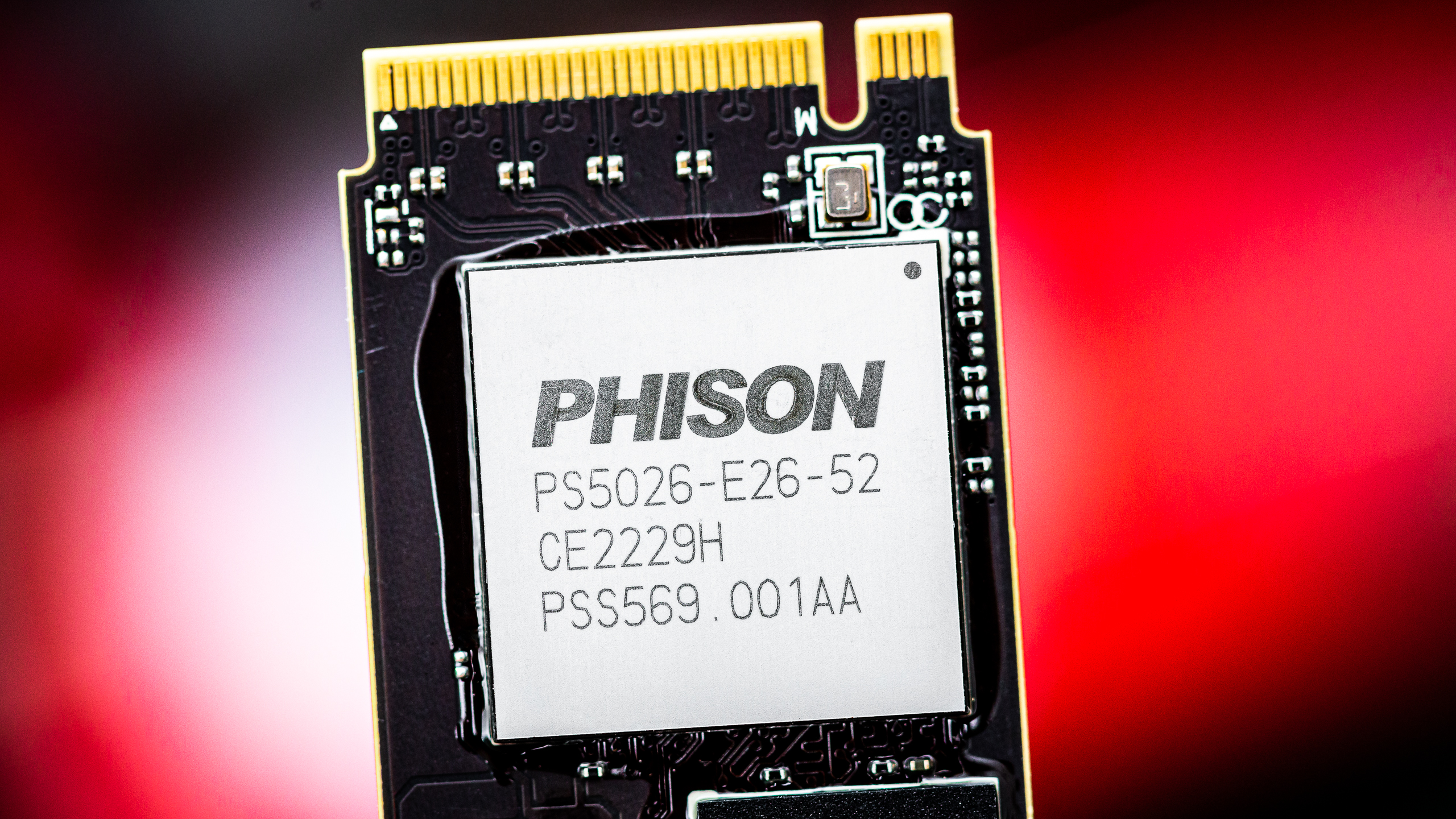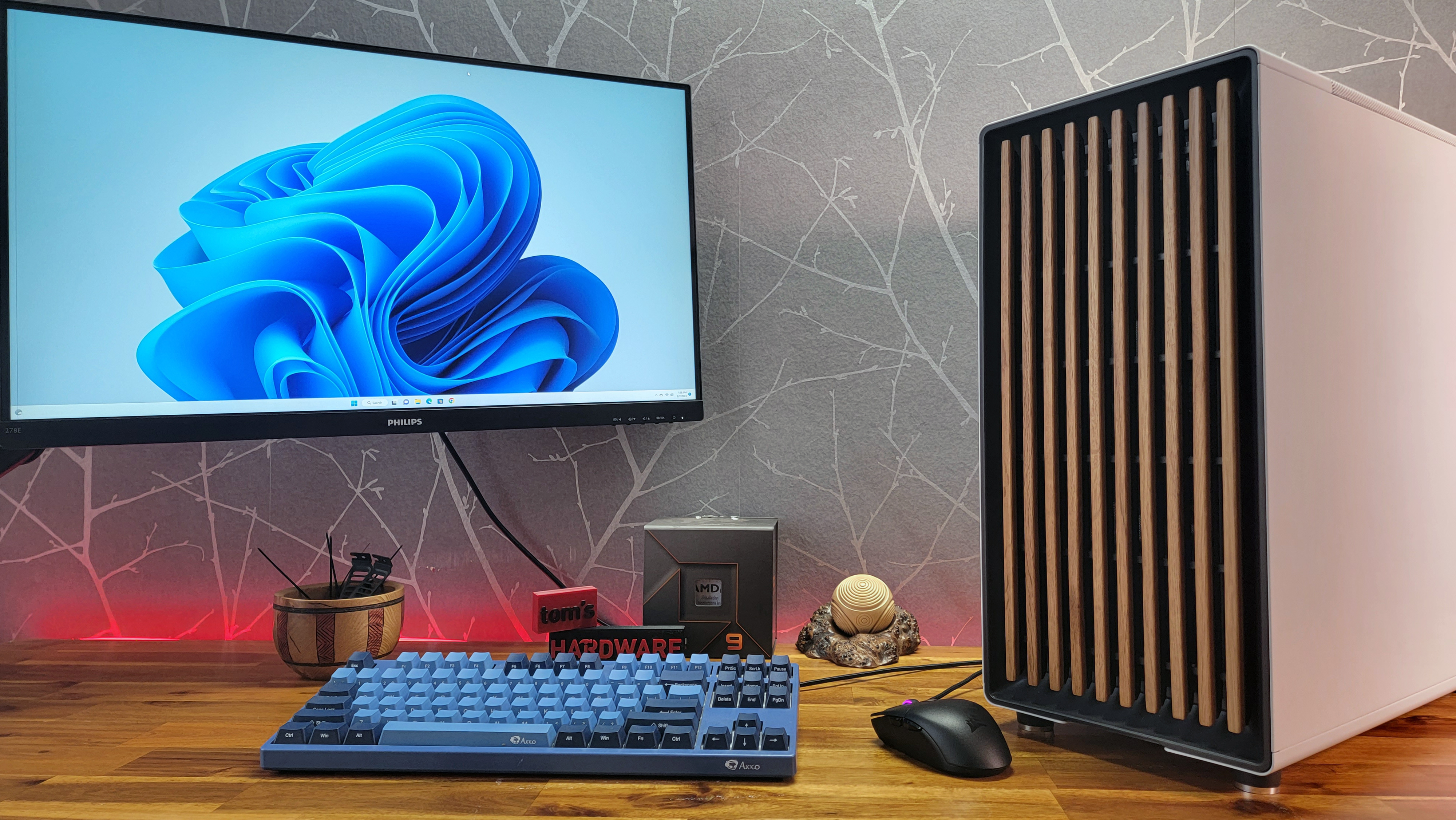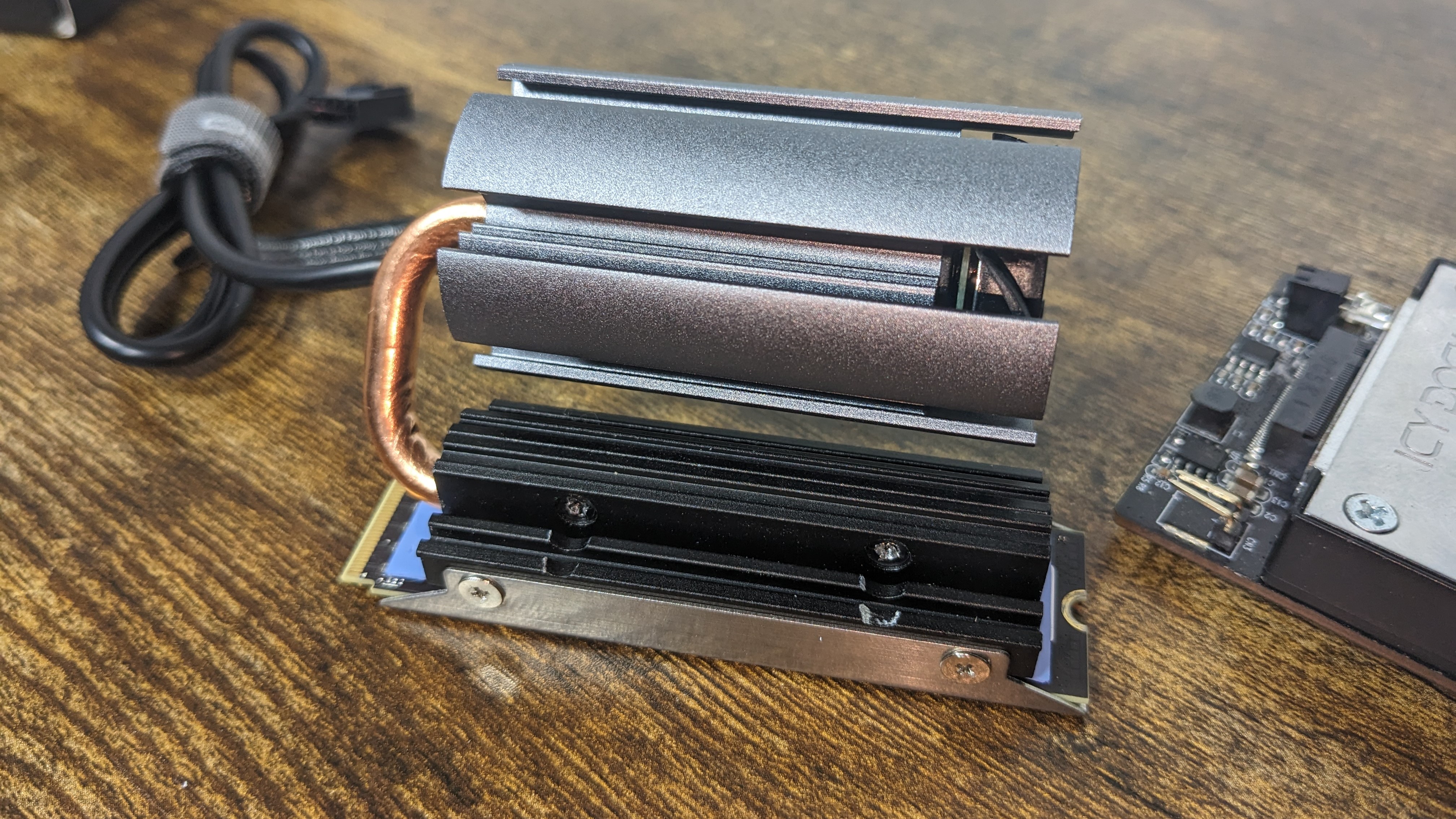Phison squashes reports of Windows 11 breaking SSDs — says it was unable to reproduce issues despite 4,500 hours of testing, recommends users deploy heatsinks just in case
If I don't see you, you can't see me.

Last week, Microsoft pushed a Windows 11 update that was reportedly breaking several SSDs. What was supposed to be a routine "patch Tuesday" turned into a headache for customers and a PR nightmare for manufacturers. Chief among them was Phison, a prolific name in the industry whose controllers are used in drives across multiple applications—both consumer and business. Now, Phison has come forward to essentially deny these reports following internal testing, in a new press release.
In a statement, the company told Tom's Hardware that "... Phison dedicated over 4,500 cumulative testing hours to the drives reported as potentially impacted and conducted more than 2,200 test cycles. We were unable to reproduce the reported issue, and no partners or customers have reported that the issue affected their drives at this time."
Initially, reports suggested that drives powered by Phison controllers were possibly among the most impacted, following errant reports that solely Phison drives were affected by the issue. Phison acknowledged the problem early on and even released a statement to Tom's Hardware confirming that some of their drives may have been affected:
"Phison has recently been made aware of the industry-wide effects of the 'KB5063878' and ‘KB5062660’ updates on Windows 11 that potentially impacted several storage devices, including some supported by Phison.... At this time, the controllers that may have been affected are under review and we are working with partners."

After testing, Phison has come to the conclusion that the issue may have been a false alarm. Prior to this development, a fake document circulated around the internet claiming to show affected Phison controllers that the company was quick to put down. It was falsified information that might've been deliberately targeting Phison rather than helping address the issue in a meaningful way.
All of that brings us to the latest event in this chain. Despite outright refuting the SSD-breaking reports, Phison says it's still committed to providing support to its customers in case anything happens. The company advises people to use heatsinks in high-performance drives, as thermal throttling can cause SSDs to underperform.
"We continue to advise users that for extended workloads, such as transferring large files or decompressing large archives, make sure a proper heatsink or thermal pad is used with the storage device. This helps maintain optimal operating temperatures, reduces the likelihood of thermal throttling, and ensures sustained performance."
Get Tom's Hardware's best news and in-depth reviews, straight to your inbox.

The whole situation has turned into more of a narrative than it should have, with many singling out Phison despite reports of multiple drives being affected. And now Phison itself is denying the issue, which further muddies the water. Despite not being able to recreate the issue, it is possible that users of drives, including those powered by Phison controllers, are experiencing issues. For now, simply don't install the latest Windows 11 update if you wish to avoid the drama entirely.
Follow Tom's Hardware on Google News to get our up-to-date news, analysis, and reviews in your feeds. Make sure to click the Follow button.

Hassam Nasir is a die-hard hardware enthusiast with years of experience as a tech editor and writer, focusing on detailed CPU comparisons and general hardware news. When he’s not working, you’ll find him bending tubes for his ever-evolving custom water-loop gaming rig or benchmarking the latest CPUs and GPUs just for fun.
-
cyrusfox Microsoft updates breaking hardware, Broken record here... hardware makers shouldering the blame and testing for poorly implemented updates.Reply -
chaz_music When I first read about these problems, I wondered if it was just a thermal issue and the SSD took itself offline to protect itself. It would not be the first time that an OS update caused a slight increase in loading on a subsystem - which resulted in thermal issues. It is unfortunate that vendors don't provide any troubleshooting or log data as to why their hardware went offline. And even more so if the hardware is using a vendor supplied driver.Reply -
Dementoss Potential fake news on the internet?Reply
Well I never, who'd be expecting that?:rolleyes: -
Alvar "Miles" Udell Even in the initial report it took a specific set of circumstances for it to occur and it was different on different drives even with the same controller, so it wouldn't surprise me at all if some other piece of software or driver version were required as well, something that can only be replicated in the real world and not a test bench.Reply -
lmcnabney Yeah, stating that users should use heatsinks (that aren't provided or even required for use) is pretty much an admission of guilt. All they did was identify that the problem is overheating.Reply -
stephenpegg Reply
They are not looking in the right place.... What phison should do is one of the batch of HD's that was sold take it run their tests with the code from windows and see that it causes the drive to over heat this is what is crashing them.... But like they would do this..... What needs to be done is just a disable of the controller that overclock the speed of write... If they give everyone that the problem will be solved.... phison has its own overclock built into it to make it work faster for large transfers... Windows has its own for the quality of life update.... So both of them run at the same time crash happens.... I have done the tests on a few that are affected by this.... to gain access is annoying but can be done with pulling the drive out and reinstalling it after a few power cycles.... This update works perfect if you don't have the overclocking in a driveAdmin said:Following reports of a Windows 11 update breaking SSDs, Phison has just issued a new statement saying they were unable to replicate the issue internally. Phison wants you to use heatsinks on performant drives under intense workloads, and that's it.
Phison squashes reports of Windows 11 breaking SSDs — says it was unable to reproduce issues despite 4,500 hours of testing, recommends users deplo... : Read more -
ahmedfarazch Hi!Reply
Was unable to find any detailed info about the reported failures. Like, bus speed/clock, ram stability testing, etc... basically any information about any overclock or any undervolt! Were the drives tested in an enclosure or in the same slot on the same motherboard?
Had hoped for much greater clarity by now. But, it seems that no evidence or absence of any evidence of the issue is still not good enough and Microsoft has to prove it otherwise for people to stop spreading the same single test/report. -
stephenpegg Reply
This is more of defective hardware then all drives like CPU are made in a group some that are not as perfect are still manufactured and sold at a slower clock speed.... So QA was not really completely cleared. Like we can have a bad stick of Ram we can be stuck with a bad HD controller.... You will find it not all of the same make and model is in question.... But someone had to put up the warning and cause so much tension with it... Its not the matter of an under volt its a process that the chip on the drive its self regulates the speed based on how much data is to be written.... Who knows maybe not enough Cache Memory for the transfer... But because this is isolated and not with every copy of the same make and model... It sounds more likely just a defective batch..... What they need is to recreate the problem with a drive that already has been exposed to this issue.... What I am getting at that its not what people make it out to be.... This might have nothing to do with the faulty update as they are claiming.... As I worked on other PC same make and model M2 no issues same update installed... Even uninstalling this update might not fix the problem, as this could resurface again, what the best solution for now... Is people who had this crash roll back the update put it back in try it one more time. See if this gives them the same results, if they put it in an enclosure they should not be able to see this issue happening as external drives will not go at the same speeds as directly connected to the motherboard.... Also there has been allot of people who messed with windows 11 install telling people its okay to use under powered rigs bypassing the check list for qualified hardware that can make windows 11 unstable... I will collect more data and submit it when I can thank youahmedfarazch said:Hi!
Was unable to find any detailed info about the reported failures. Like, bus speed/clock, ram stability testing, etc... basically any information about any overclock or any undervolt! Were the drives tested in an enclosure or in the same slot on the same motherboard?
Had hoped for much greater clarity by now. But, it seems that no evidence or absence of any evidence of the issue is still not good enough and Microsoft has to prove it otherwise for people to stop spreading the same single test/report. -
stephenpegg Reply
That is basically what I was getting at... Out of 50 drives tested only two failed and out of the 50 at least 10 of them are the same make model It really looks like a fault in the controller we get that all the time just not always will it be visible till something sets it offAlvar Miles Udell said:Even in the initial report it took a specific set of circumstances for it to occur and it was different on different drives even with the same controller, so it wouldn't surprise me at all if some other piece of software or driver version were required as well, something that can only be replicated in the real world and not a test bench.